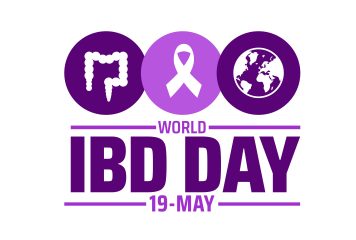Paul T. Conway is the former president and current Chair of Policy and Global Affairs for the American Association of Kidney Patients (AAKP), and Chair of the Commonwealth of Virginia’s Renal Disease Council. He has managed kidney disease for more than 40 years—including three years on home peritoneal dialysis—and received a kidney transplant almost 26 years ago. Mr. Conway has a long history of working in policy, patient advocacy and personnel management, serving under four U.S. presidents, four governors and in support of five presidential transitions. In 2022, he was among several AAKP leaders honored by President Joseph R. Biden with the President’s Lifetime Achievement Award, a national, non-partisan award recognizing outstanding volunteer service.
Mr. Conway is a member of the ABIM Nephrology Board.
What is the Renal Disease Council for the Commonwealth of Virginia and what will it do?
The Council is new for the Commonwealth of Virginia. It was the result of legislation in 2022 led by Senator Ghazala Hashmi, who is very committed to issues of kidney disease and disease prevention. The Council is designed to serve in an advisory capacity to both the governor—Governor Glenn Youngkin—and the state legislature on different aspects of the kidney ecosystem in Virginia; for instance, how patients are connected to patient services, from specialists to insurance issues, and how patients can access more disease information. The Council has the scope to consider programs that are most helpful to patients. Another component of the Council’s portfolio includes how to educate the public and professionals on emerging kidney disease issues, which may include emerging innovations in kidney care.
How did you become involved in kidney disease policy?
When I was very young, I had planned to enter the military. My grandfather was a U.S. Army sergeant in World War I, and my father served in the U.S. Navy on PT boats in World War II in the Pacific. At 16, I was diagnosed with kidney disease and told point-blank by both my doctor and my father that it would preclude me from military service. It wasn’t until my father took me to see a Navy recruiter who told me the same thing that I believed the implications of the diagnosis. I was devastated. My father told me there were many other ways to serve your country and one of them is through policy and public service. He worked as a civilian for the U.S. Department of Defense in research and development and he had seen inconsistencies in policy set back the goals of the nation and Department for years. So, I took his advice, and became involved in local legislative races and Ronald Reagan’s 1980 presidential campaign and went from there.
What has changed for kidney disease patients in the last 10 years?
What has been fascinating in the last 10 years is the explosion in patient engagement and patient insight data being used for medical research, clinical trials, innovations, payment decisions, policy decisions and key legislative efforts in the U.S. Congress. These are monumental shifts that have been secured through advocacy and the advancement of principles including patient care choice and patient-centered medicine.
Ten years ago, AAKP, alongside kidney professionals, helped secure HIV positive-to-HIV positive organ transplants in the U.S. through legislation—a lifesaving breakthrough in transplantation. In 2018, the U.S. Department of Labor (DOL) conducted research, with the transplant community and AAKP, on whether the Family Medical Leave Act (FMLA) was intended by Congress to cover living organ donors. It was discovered that it was part of the original floor discussion. DOL subsequently issued a letter formally extending FMLA to organ donors, another huge victory because FMLA ambiguities were a historic barrier to increased living organ donation. Organ donors truly feared they would lose their job if they gave a lifesaving organ to a loved one. In 2019, President Donald Trump issued Executive Order (EO) 13879 called Advancing American Kidney Health, which proposed high bipartisan goals for increased access to home dialysis and kidney transplants, greater upstream prevention and the concept of America as the champion for artificial organs. To the kidney community, the EO signaled that elected leaders were united and focused on innovations and improved outcomes. In 2020, AAKP and the kidney community finally, after 20 years, secured lifetime coverage for immunosuppressive drugs for kidney transplants, effectively ending an outdated federal policy that had stopped drug coverage 36 months post-transplant. Transplant patients no longer face the prospect of losing their organ, returning to dialysis and premature death simply because they experience an interruption to their insurance coverage.
Considering the past 10 years, doctors and patients have demonstrated that if we are united and persistent and we target the right levers of power and influence, we can actually get things done to advance medicine and save more lives.
African Americans and Latinos are more likely to have kidney failure compared to white Americans. What can be done to address this disparity?
It’s quite clear there is a disproportionate level of disease occurrence and impact in these communities. From the standpoint of medicine, you want to make certain that your prevention education programs include a forward-leaning approach toward those communities. If that’s not the case, you’re simply looking at more human suffering and it’s just not acceptable.
For example: for years, there was no therapy that could slow diabetic kidney disease (DKD) progression and help delay kidney failure. Now there is a safe, FDA-approved drug that can achieve that outcome. As an advocate, the question we ask is, what are we doing now to lean forward into those communities most at-risk for DKD and kidney failure to educate them on this therapy? It’s not simply the job of the drug maker or the patient advocate; it’s the job of the full medical community to look at those patients who experience or have a family history of DKD and ask what more can we do together to increase therapy awareness and to limit further disease impacts on patients and taxpayers.
And looking at this as simply a medical issue is not enough. We need to understand the cultural issues that may be involved, appreciate their American experiences and seek out relevant community stakeholders and trusted voices to engage in kidney disease prevention and treatment education. To be effective, medical professionals and others need to talk to the voices and institutions that patients and families respect—especially the leaders within the faith community and local communities. Over time, a holistic and broader approach to disease prevention and intervention produces better results.
What should kidney disease patients look for in a nephrologist?
One of the first things they should look for in a physician is whether they’re board certified. I think that all kidney patients, no matter where they live in the U.S., rural and urban areas included, should expect a standard of excellence from those who provide care. That standard involves knowledge, real practical experience and a credential. Patients should look for a nephrologist who is board certified, and then do additional research to determine if the doctor has experience with their particular type of disease because kidney diseases vary widely as do professional specializations. Patients should feel as though they are hiring an expert to help them, as an equal partner, in the treatment process. Then in the first appointment, they should get a sense for whether the doctor actually listens to and hears their concerns. Further, patients should see if the doctor takes the time to understand who the patient is, and whether the doctor sees them for who they are beyond their condition and without bias. I think these are fundamental elements of trusted medical relationship..
Why do you think board certification is important?
Physicians have the energy, persistence and courage to matriculate through very high levels of specialized education. They are highly esteemed in our culture and our country, and their opinions and decisions can impact human life and a person’s ability to earn an income and live a fulfilling life. There should be very high standards that doctors hold themselves to as a trusted, and trustworthy, profession.
I know some doctors feel that maintenance of certification is a burden, but I’d encourage them to view it from the standpoint of a patient consumer who is purchasing their services. Wouldn’t you want to offer your customers the best? In the case of medical professionals, ABIM offers them the chance to verify their knowledge by an objective standard. That matters to patients and to the increasingly powerful patient advocacy community
What value do you find in serving on the Nephrology Board?
It has been a unique honor and a fantastic opportunity. The thing I’ve found most valuable about it is how ABIM is very interested in the current expertise and knowledge of the nephrology workforce—but it is also anticipatory. They look beyond the horizon at what is changing in medicine, where innovation is driving evolutions in treatment and policy, and what patient-consumers should expect of their specialists. It’s refreshing for me because my viewpoints both as a patient and as a policy professional are fully respected. I genuinely feel that I’m among colleagues whose central focus is improving health care quality and improving patient choice. ABIM is making certain that patients are able to choose professionals who are credentialed and qualified. That is critical to both patient safety and the expansion of true, substantive, patient-centered medicine.



